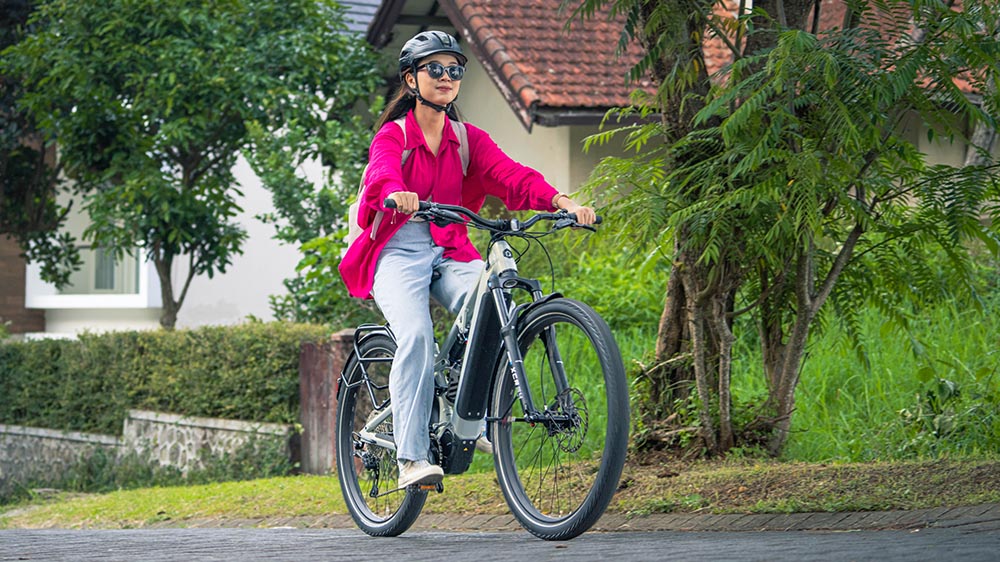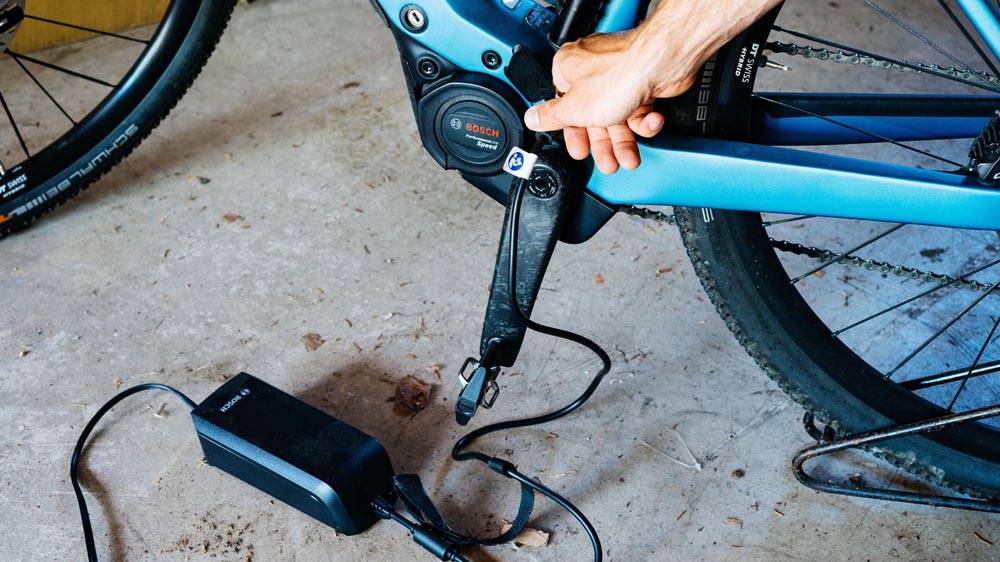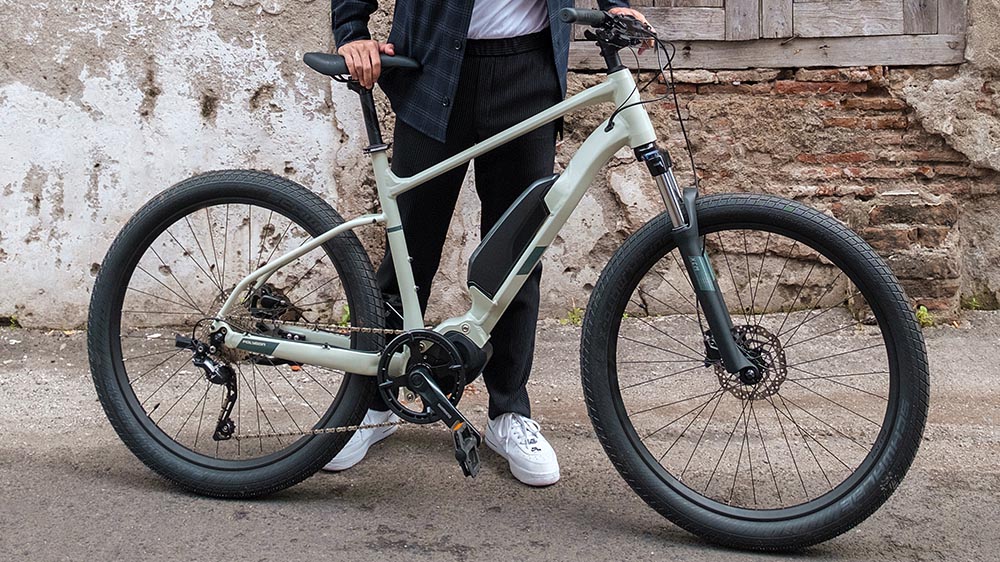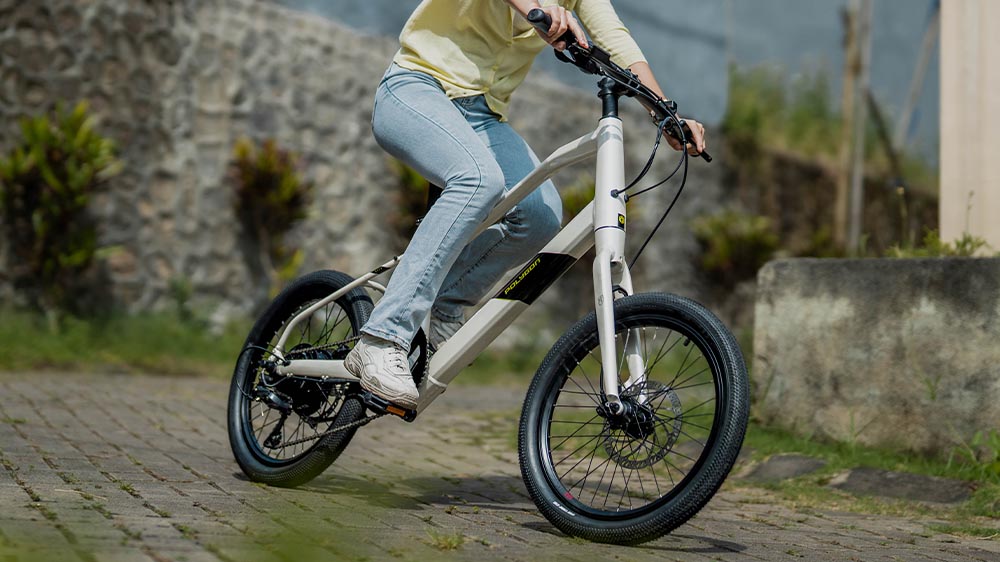It’s no secret that our cities are getting harder to breathe in. Between bumper-to-bumper traffic, honking engines, and the endless fumes from gas-powered vehicles, urban air pollution is becoming a serious issue.
According to global health studies, air pollution is now one of the leading environmental health risks, contributing to respiratory illnesses, heart problems, and even premature death.
The main culprit? Transportation. Cars, trucks, and motorcycles release harmful emissions that clog our atmosphere with carbon dioxide and other toxic pollutants.
And while many are turning to electric vehicles (EVs) as a cleaner alternative, an even smaller, smarter, and greener option is gaining traction: the electric bikes.
More than just a trendy gadget, the e-bike is proving itself to be one of the most environmentally friendly ways to move around.
Whether you’re commuting to work, running errands, or just cruising through your neighborhood, riding an electric bicycle is one of the easiest and most effective ways to reduce your impact on the planet.
How Electric Bikes Help the Environment?

Choosing an electric bike isn’t just about convenience—it’s about making a real difference. Compared to cars or even electric vehicles (EVs), e-bikes are lighter on the planet in several key ways. Here’s how:
1. Zero Emissions, Zero Pollution
One of the most obvious—and important—benefits of e-bikes is that they produce zero tailpipe emissions. That means no carbon monoxide, no nitrogen dioxide, and none of the toxic pollutants that traditional vehicles pump into our cities every day.
When you ride an electric bicycle, you’re not just reducing your carbon footprint, you’re helping clean the air for everyone. The difference in air quality would be massive.
2. Uses Less Power Than EVs
Yes, electric cars are a big step forward from gasoline-powered vehicles. But they still use a lot of electricity. On average, an electric car needs around 15–20 kWh to travel 100 kilometers. An e-bike? Just 1.5 kWh or less for the same distance.
That’s a huge energy savings, not just for your wallet, but for the environment. E-bikes are 10–13 times more energy-efficient than EVs, making them a smarter option for short commutes, especially in cities where trips are usually under 20 km anyway.
3. Ideal for Short and Medium Commutes
Electric bikes are built for short-to-medium distances. You can skip traffic, glide into bike lanes, and park easily without burning fuel or battling with congestion.
If more people replaced even half of their weekly short car trips with an e-bike ride, cities would see a major drop in emissions—and in traffic headaches, too.
4. Less Noise, More Peace
E-bikes are almost silent compared to cars and motorcycles. That makes a big difference in urban soundscapes, where noise pollution is a growing problem.
Quieter streets mean better sleep, lower stress levels, and even a more welcoming environment for wildlife. Riding an e-bike means you’re not just cutting down on air pollution—you’re also contributing to a more peaceful, livable city.
Are E-Bikes Truly Good for the Environment?

Yes, e-bikes are genuinely eco-friendly, even when you factor in the battery. While it’s true that producing lithium-ion batteries has an environmental cost, e-bike batteries are far smaller and less resource-intensive than those in electric cars.
A typical e-bike battery holds around 400–700Wh, compared to over 60,000Wh in an EV, so the impact is drastically lower.
Plus, e-bike batteries are recyclable. Many local programs and manufacturers now support battery recycling, recovering valuable materials like lithium and cobalt. And with a lifespan of 3 to 5 years (or hundreds of charge cycles), a well-maintained e-bike battery goes a long way. So while no battery is perfect, e-bikes strike a great balance between practicality and sustainability.
Misconceptions About E-Bike Sustainability

Electric bikes are pretty green, but some common myths still float around. Let’s clear them up:
“Aren’t Batteries Bad for the Environment?”
It’s true—battery production uses resources. But e-bike batteries are tiny compared to electric car batteries.
An EV battery can weigh up to 600 kg, while an e-bike battery weighs just a few kilos. That means less material, less energy to make, and much less waste. Plus, most e-bike batteries can be recycled.
“Isn’t Charging an E-Bike Still Polluting?”
Even if you’re using fossil fuel-powered electricity, charging an e-bike emits way less than driving a car. E-bikes are 3–5 times more efficient than EVs and up to 20 times more than gas cars. Charging one uses about as much energy as your laptop for a day.
“Are E-Bike Brands Eco-Friendly?”
Not all brands are, but many—like Polygon—are stepping up. They focus on durable builds and expanding e-bike options for daily use, helping more riders ditch cars. It’s a move in the right direction.
Electric bikes are generally designed to last for years, but how long can they truly go? Dive into our article “Electric Bike Lifespan” to uncover the real facts.
Recommended E-Bikes for Eco-Friendly Commuting
If you’re ready to make the switch to a cleaner commute, Polygon has two excellent e-bike models that combine sustainability with style and everyday practicality.
Polygon Kalosi E-Bike

Kalosi is designed for urban riders who want a practical, low-maintenance e-bike that doesn’t compromise on quality. Built with a sturdy ALX Urban frame and reliable Shimano Altus 8-speed drivetrain, it’s smooth on city roads and steep hills alike.
Key highlights:
- BAFANG 250W rear hub motor – offers strong yet quiet pedal-assist power
- 36V 7Ah Samsung battery – energy-efficient and compact
- Tektro HD-M275 hydraulic brakes – responsive stopping power in any weather
- Shimano Altus 8-speed gearing – versatile enough for daily rides and weekend adventures
Kalosi is a great choice for those looking to go green without sacrificing ride quality or control.
Polygon Gili Series

Compact, stylish, and ultra-practical—the Gili e-bike series is designed for modern city life. You’re getting a commuter bike built with top components and everyday comfort in mind.
Key highlight:
- Choice of frame styles – from sleek to classic, there’s one for every taste
- Shimano 8–9 speed drivetrains – smooth shifting for urban terrain
- Tektro hydraulic disc brakes – safe and reliable braking
- Vee Speedster tires – perfect for efficient, stable city riding
With its lightweight alloy frame and efficient electric assist, Gili helps make the switch from car to bike feel like an upgrade, not a compromise.
Read also:
Conclusion: Why Electric Bikes Are the Environment’s Best Friend?
As cities grow and pollution worsens, switching to cleaner transportation is more important than ever.
Electric bikes offer a smart, eco-friendly solution by producing zero emissions, consuming far less energy than cars or EVs, and keeping noise pollution low.
Yes, e-bikes do have batteries, but their small size, recyclability, and efficient use make them a much greener choice than many think.
Plus, charging an e-bike uses very little electricity and is much cleaner than burning fossil fuels in a car.
Brands like Polygon are leading the way with durable, thoughtfully designed e-bikes like the Kalosi and Gili series, making it easier and more enjoyable than ever to ride green on your daily commute.
So if you want a vehicle that’s not only fun and practical but also kind to the planet, an electric bike is definitely worth considering.
Discover our latest activity on our YouTube channel













